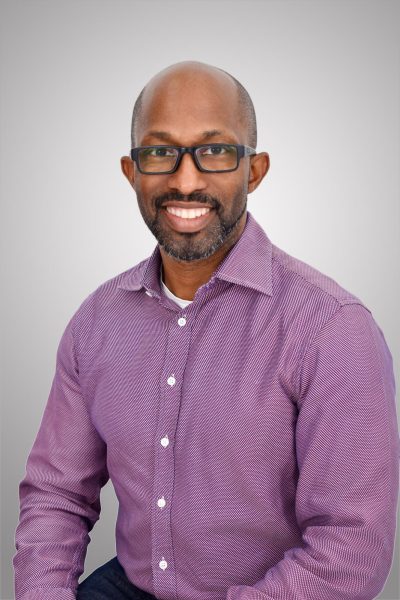Following a process that began in the spring of 2023 of introducing an African Diaspora Studies Department, Dr. John Thabiti Willis has been named the inaugural Kesho Scott Endowed Chair in African Diaspora Studies (ADS). He will officially start on Aug. 1, 2025.
“From a rich pool of candidates for the Dr. Kesho Scott Endowed Chair in African Diaspora Studies, Dr. Willis’ bold vision for the new department stood out as particularly consistent with the foundation set in place by Grinnell’s African diaspora studies steering committee,” said Caleb Elfenbein, chair of the search committee, in the College’s announcement.
From accounting to African studies to Grinnell College
Willis began his academic journey with a Bachelor of Arts in accounting from Clark Atlanta University, a historically black college, in 1994. During his undergraduate years, he said Professor Daniel Black, who had gotten his PhD in African American studies, was an inspiration to him.

“It was extremely formative,” said Willis, “It was having mentors and being part of such a community that led me to imagine that there was a future for me beyond corporate America.”
He later pursued a master’s degree in African and African American studies at Cornell University and earned a Ph.D. in African history from Emory University. Building on this foundation, Willis completed a postdoctoral fellowship at the Carter G. Woodson Institute for African American and African Studies at the University of Virginia and underwent advanced training in Geographic Information Systems (GIS) at Harvard University.
“[Being accepted into Cornell University] provided the opportunity for me to travel to Nigeria for the first time and to develop an interest in the study of Yoruba-speaking people and their diasporic experiences in places like Cuba, Brazil and Haiti,” Willis said.
Previously, he was an associate professor of history and former director of Africana studies at Carleton College. His courses have immersed students in a variety of cultural contexts, offering firsthand exposure to the African diaspora’s breadth across places such as the United Arab Emirates, Bahrain, Oman and Tanzania.
Willis is also the author of the book “Masquerading Politics: Kinship, Gender, Ethnicity in a Yoruba Town,” which was published by Indiana University Press in 2018.
“One of my best friends, his sister-in-law is an alum of Grinnell, and she helped me with my book manuscript,” said Willis, “And so I kind of knew very vaguely limited about Grinnell.”
The collaborative road to establishing African Diaspora Studies
Named after Kesho Scott, senior faculty status, who has taught at Grinnell since 1986, the department is a culmination of efforts that date back to 1971 when then-called Concerned Black Students (CBS) took action by locking themselves inside Burling Library and issuing 10 demands aimed at improving campus life for Black students. Among these demands was the establishment of a Black studies major, which was introduced in 1972.
That program was created, however, by 1979, it was discontinued with the College citing insufficient student interest. Over the years, Grinnell has seen various adaptations of Black studies programs, the most recent being the Africana studies concentration launched in 1996 that remained until 2005.
The hiring process
The interviewing process for the Inaugural Kesho Scott Endowed Chair started last semester with 56 formal applications. For the selection, Grinnell College contracted the hiring firm Summit Search Solutions.
The S&B formerly reported on the hardship of filling the position.
“I think state level politics in Iowa played a role in that as well, that some folks just really were concerned about the capacity to build something like this, realizing that the climate was a blue star in a red state,” said Tammarah Townes, a senior consultant for Summit Search Solutions, previously told the S&B.
Willis said that relocating was initially difficult to envision, but he was ultimately drawn to Grinnell College by the strong collaboration between faculty, administration and students, which made the institution an exciting prospect.
“It was hard for me to imagine myself in another small Midwestern town, just because I’m not from the Midwest,” said Willis, “But the position and seeing an institution having invested in this way, I was like, you know, is worth checking out.”
Dr. Willis’s plans for the department
“I think to start with is to nurture the development of a department that centers human relationship,” Willis said.
Willis emphasized linking the curriculum and classroom experience to real-world applications beyond Grinnell. To him, engaging with diverse cultures embodies the principles of community interaction and helps create a world where everyone can thrive.
“Recognizing the uniqueness of the Atlantic by putting it in a larger global context is really important,” Willis said, “And recognizing that people have moved and circulated and that influences on a global scale, at least beyond tightly bound geographies.”







